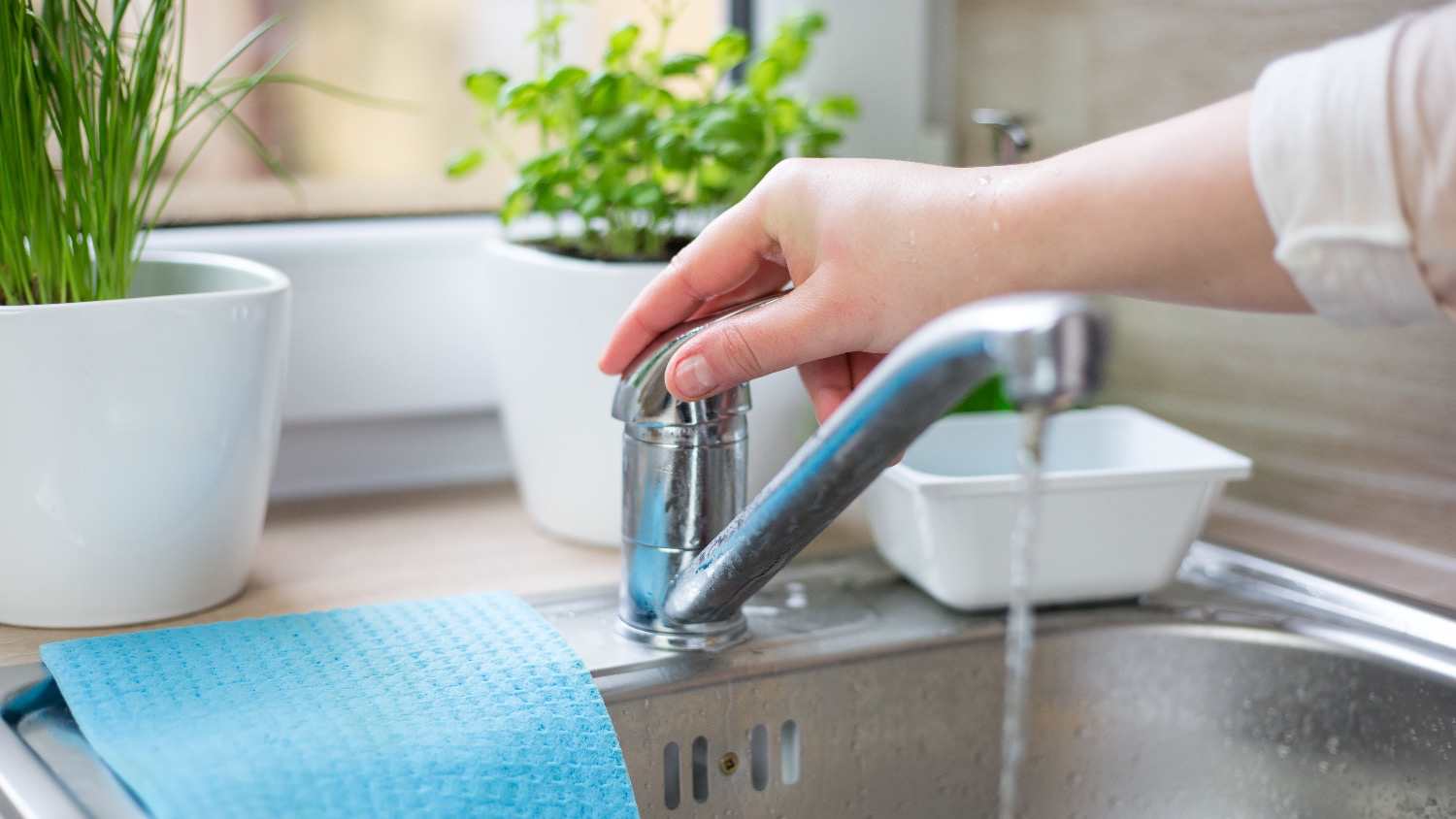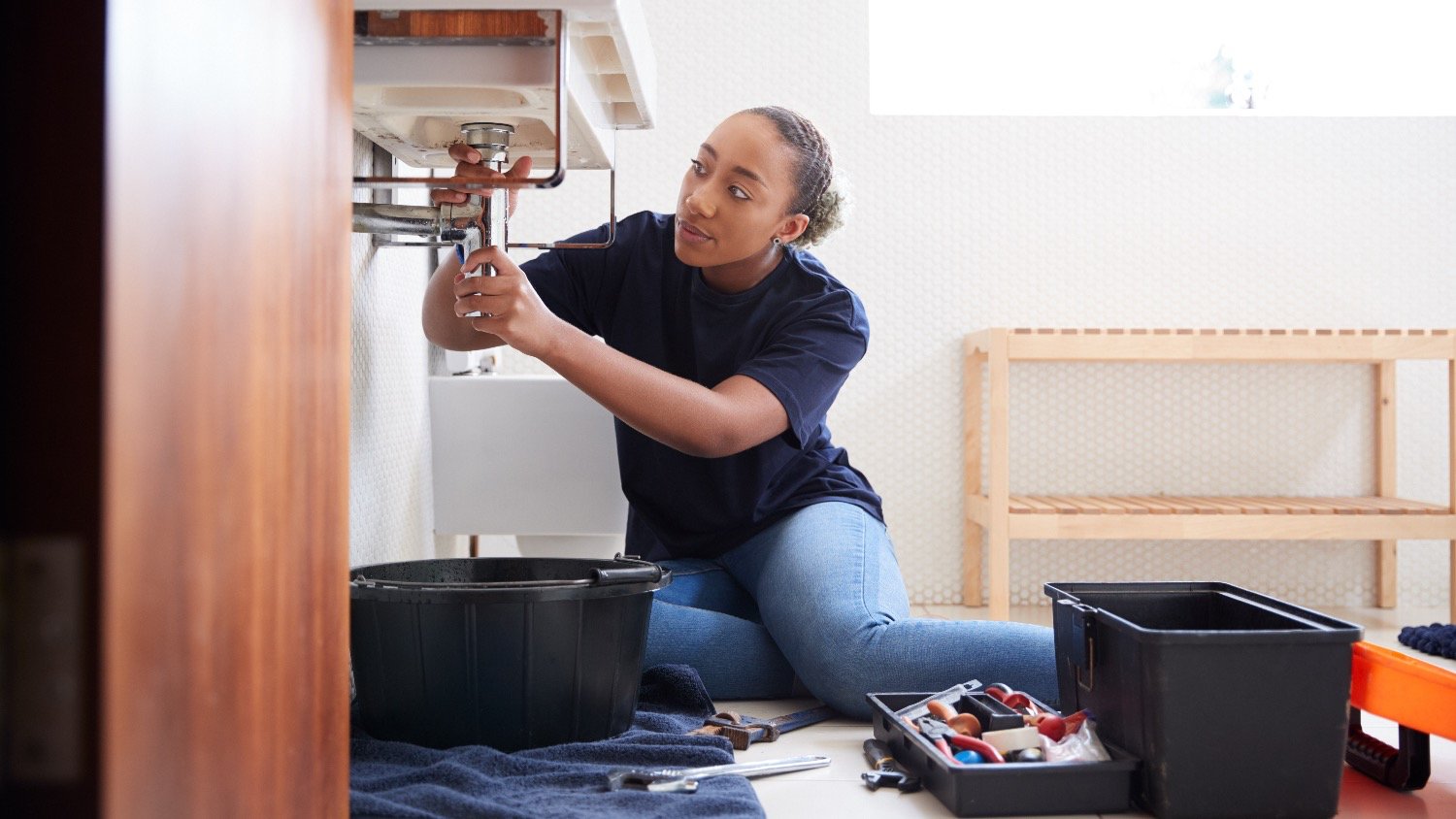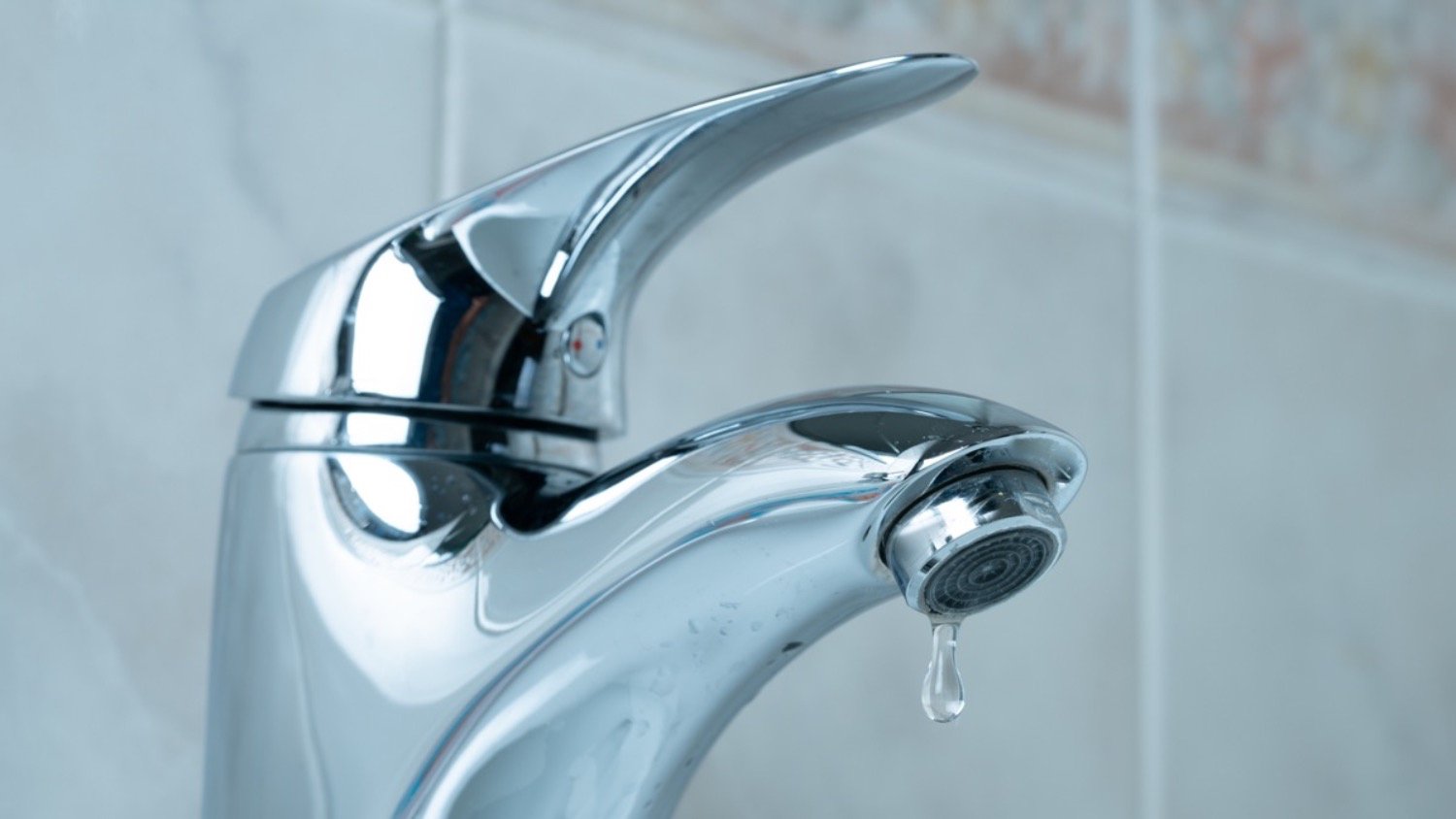
Emergency plumbers cost between 1.5 and 3 times as much as a typical plumber. Get specifics for your plumbing issue and city in our guide.
Burst pipe repair costs $500 on average, with most homeowners spending between $200 and $3,000, depending on the damage.


Burst pipe repair costs depend on location, severity of the issue, and the type of pipe you have.
If the burst pipe is easy to access and simple to fix, like a patch or replacement of a single pipe, the repair costs are likely to be lower.
If the burst pipe is underground, a main, or sewer line—or a complete re-pipe of the home is required—expect costly repairs.
DIY repairs for small leaks are a good solution until you can call a plumber to do a permanent fix.
Preventing leaks can save you hundreds to thousands of dollars, so get pipes inspected regularly, winterize them, and improve your home's insulation.
Repairing a burst pipe costs an average of $500 if you hire a plumbing repair pro. On the low end, you could spend $150 to replace small areas of the pipe. On the high end, burst pipe repair costs can exceed $5,000 if you need to install new pipes underground or take care of related water damage. The amount of pipe requiring repairs will also affect the cost at $150 and $250 per linear foot.
From sub-freezing winter temperatures to old corroded pipes that couldn't take the pressure, the threat of burst pipes can keep a homeowner up at night. This guide will help you estimate the cost of a potential repair and teach you how to prevent pipe problems before there’s a serious leak.
After some detective work to find where the leak is coming from, you can determine the cost of your burst pipe repair based on several factors. The price range depends on the size of the affected pipe, labor costs, pipe material, and location.
Start by estimating the size of the damage. On average, burst water pipe repair costs between $150 and $250 per linear foot for labor and materials. Keep in mind that replacing the pipe alone—before labor—only costs between $0.50 and $30 per linear foot. In other words, labor costs account for most of the price.
In some cases, a clogged or frozen region of the pipe may have only affected a single area. Not only will this require fewer materials, but it's also a quicker fix. However, if your pipes are bursting from age and corrosion, your plumber will likely recommend updating any vulnerable areas of the pipe.
In many cases, the larger the broken pipe, the higher the per-linear-foot cost. This expected increase is due to the additional labor required to access, repair, and replace complex pipework.
| Size (Linear Feet) | Average Cost (Materials and Labor) |
|---|---|
| 1 | $150–$250 |
| 2 | $300–$350 |
| 5 | $750–$1,250 |
| 8 | $1,200–$2,000 |
A whopping 80% of the cost to repair a burst pipe accounts for labor. Plumbers charge either a per-hour rate, a flat fee, or a combination of the two, depending on the extent of the repair. Here are some ways the price will break down:
Plumber hourly rate: $45–$200 per hour
Flat fee: $100–$1,250
Travel fee: $50–$300
Thawing frozen pipes costs: $100 flat fee
Emergency call fee: $100–$300
Labor flat fees and the hours it takes to fix a burst pipe heavily depend on its location and material. For example, a hard-to-access copper pipe will cost more to repair than a PVC pipe under the kitchen sink. You’ll also pay more if you need to find a plumber who can make emergency repairs versus calling during business hours.
When a pipe bursts due to corrosion, clogs, or freezing, you’ll need to replace it. In some lucky cases, however, you or your plumber can repair the pipe without replacing it, such as with pipe tape or epoxy.
Assuming you need to replace the pipe section after a significant burst, the repair cost will depend heavily on the pipe material. Pipe types common in modern homes, like PVC, are less expensive to repair than less-used types, such as copper and fiberglass.
| Pipe Material | Materials Only (per Linear Foot) | Materials and Labor (Per Linear Foot) |
|---|---|---|
| PVC | $0.50–$8 | $150–$260 |
| Galvanized | $3–$8 | $155–$260 |
| Polypropylene | $1–$15 | $150–$275 |
| Fiberglass | $6–$10 | $155–$260 |
| Copper | $2–$15 | $150–$275 |
| Cast iron | $10–$30 | $160–$280 |
Unfortunately, there are many reasons why a pipe may burst, especially in older homes. In all cases, something from outside or inside the pipes causes the material to weaken. Water pressure will then push through the weak area of the pipe, causing it to burst. Some of the most common reasons a pipe bursts are:
Ice expanding in the pipes
Corrosion from age or a damaging chemical reaction from other metals
Blunt force
Soil pressure on underground pipes
Tree roots in or outside a pipe
Water pressure behind a severe clog
The type of damage affects the cost of repairing a burst pipe because it determines whether you can patch the pipe or need to replace it. Replacing the pipe will cost between $360 and $2,000. For corroded pipe repair costs, prices can stretch into the thousands if you need to replace old pipes showing significant wear and tear.
The pipe’s location and how difficult it is to access can affect the repair price. You'll find the full price range of repair costs—from $150 to $5,000—based on location.
For example, plumbers may need to remove drywall, floorboards, or ceiling boards to access the pipe. They may even need to dig into your yard to access the water main line, sewer line, or sprinkler system, causing your project cost to reach the higher end of the price range.
It's best to assume that burst pipe repair costs will be 15% higher than average to account for overage fees. The extra expenses cover everything from additional pipe replacement to structural updates affected by the leak. For example, the cost of mold remediation averages between $10 and $25 per square foot. Water damage repair costs add another $4 to $7 per square foot to the cost.
Don't skip out on your plumbing inspection every two years to avoid another burst pipe in the future. The inspection costs about $200 but could save you thousands in the long run.

If you're lucky, the problem pipe bursts in an accessible spot around waterproof flooring, such as in the bathroom or an unfinished basement. In most cases, though, the plumber needs to alter other parts of the house to fix the pipe.
| Pipe Location | Average Cost Range |
|---|---|
| Wall | $150–$500 |
| Bathroom | $150–$800 |
| Kitchen | $150–$500 |
| Basement | $200–$600 |
| Sewer line | $1,300–$4,700 |
| Main line | $150–$2,000 |
| Sprinkler | $150–$350 |
When a wet spot suddenly—or slowly—appears on the wall, it's time to investigate a leaking or burst pipe behind it. Burst pipe repairs behind walls cost between $150 and $500, not including the cost to repair the drywall at $50 to $75 per square foot.
Burst pipes in the bathroom can be incredibly accessible—such as under the sink—or a challenge to reach, such as beneath the toilet, shower, or tub. You can expect to pay between $150 and $800 for burst pipe repair costs in a bathroom.
Pipe repairs in the kitchen are very similar to those in the bathroom. They’re either easy to reach—like underneath a sink or behind an appliance—or deeper within the floors and walls. Pipe repairs cost between $150 and $500, depending on the pipe’s location in your kitchen.
Accessible basement pipes that service the floors above them cost between $200 and $600 to repair and replace after bursting. However, if the pipe lives under a concrete floor or behind a concrete wall, prices could climb as high as $4,500.
Not many home issues are more nightmarish than a sewer line bursting. The cost of professional sewer line repairs—because you'll need to call a sewer repair pro for this one—ranges between $1,300 and $4,700. After the fix, you’ll need to budget for deep home cleaning costs for an average of $500 to eliminate lingering smells or mess.
Water main lines can burst due to roots, pressure, severe clogs, or time. The cost to repair a burst water main line ranges from $150 to $2,000. Full main line replacement costs depend on whether you choose trench or trenchless repairs that dig up your yard to access the pipe, ranging between $50 and $250 per linear foot.
If an underground pipe in your sprinkler system bursts, expect to pay between $150 and $350. The issue may trigger related repairs to your sprinkler system, which cost an average of $260.
The day before Thanksgiving, my plumber fixed a leaking pipe that burst. They arrived quickly, minimizing any damage, and worked efficiently—which was very important, as I had Thanksgiving guests arriving the next morning! I've definitely found my new plumbing and heating specialists for the future.

An average of 80% of the repair cost will go toward labor alone when you hire a plumber near you for the job, but it’s still well worth the investment. DIY plumbing repairs are far more likely to give you ongoing problems, especially if you make a mistake. Errors can also leave you with much more significant water damage down the road, so DIYing can actually end up costing you more.
There are a few key reasons you should leave burst pipe repair work to a pro:
Pipe repair done by a plumber is much less likely to continue giving you problems.
A plumber will use repair methods and tools that DIYers often won’t, leading to a permanent fix instead of a temporary patch.
Plumbers can identify the underlying reason for the damage and make recommendations to avoid future problems.
Some professionals offer warranties for their work for future peace of mind.
DIY mistakes can increase the risk of additional water damage, unnecessarily high water bills, mold growth, and even pest infestation.
You should always hire a licensed plumber to carry out the actual burst pipe repair, but there are some things you can tackle yourself if you want a hand in the fix:
Find the source of the leak and shut the water to that part of your home to prevent ongoing damage.
Set up a blower fan or dehumidifier in the area to start drying out wet materials.
Remove drywall, plumbing fixtures, or other materials to expose the leak if you know roughly where it’s located.
Handle the buildback afterward, if necessary, including drywall patching, flooring replacement, painting, and other repairs.
A burst pipe is not always as obvious as we'd like. This undesirable problem can happen over time or all at once. After freezing weather, it may not show itself until after the pipe thaws.
Possible signs of a burst pipe include:
Water discoloration
Odd sounds coming from pipes
Damp or discolored areas on walls, floors, or ceilings
Musty or moldy smells
Drop in water pressure
Inconsistent water pressure
Increased water bills
These signs aren’t all-encompassing, but knowing how to spot a burst pipe will give you a better chance of finding the problem sooner rather than later.

Preventing burst pipes is always the best way to lower repair costs. Even if you lose the battle in one area of your plumbing, attentive maintenance can lower the chances of extensive damage.
Here are a few tips for preventing burst or frozen pipes:
Schedule a plumbing inspection once every two years.
Address common plumbing issues early, such as abnormally high water pressure or frequent clogs.
Winterize your pipes at the end of fall if you live in a cold climate.
Let your faucets drip when you plan to be out of the house during an extreme cold snap.
Update your home's insulation if you’re frequently fighting extreme winter drafts.
Schedule an inspection if you suspect your main line is clogged.

Additionally, get to know your homeowners insurance before a pipe freezes or bursts. Water damage is commonly covered for something like a burst pipe, but there are caveats in every policy. Some policies will not cover burst pipes and related damage if they occur due to a lack of maintenance.
Be ready to tell your pro if you’ve isolated the leak or if you need emergency services to stop the flow of water into your home.
If possible, let your plumber know what type of pipe is damaged so they can prepare for a quick fix.
Tell your pro if you can’t find the source of the leak so that they can bring special tools to find the source of the issue.
Let your plumber know if the leak is near electrical components, which could pose a severe risk.
Home is the most important place on earth, which is why Angi has helped more than 150 million homeowners transform their houses into homes they adore. To help homeowners with their next project, Angi provides readers with the most accurate cost data and upholds strict editorial standards. We extensively research project costs to develop the pricing data you see, so you can make the best decisions for you and your home. We rely on reputable sources, including the U.S. Bureau of Labor Statistics, academic journals, market studies, and interviews with industry experts—all to ensure our prices reflect real-world projects.
Want to help us improve our cost data? Send us a recent project quote to [email protected]. Quotes and personal information will not be shared publicly.
From average costs to expert advice, get all the answers you need to get your job done.

Emergency plumbers cost between 1.5 and 3 times as much as a typical plumber. Get specifics for your plumbing issue and city in our guide.

Making updates to your home? You may need to move your gas line to fuel new appliances or meet code regulations. We’ll cover the cost of moving a gas line, plus project tips.

This guide to toilet installation cost covers what you can expect to pay when adding a new toilet to an existing or new bathroom.

Insulating your pipes is a simple DIY project that can prevent costly damage and lower your energy bills. Learn how to insulate your pipes yourself with this easy guide.

Cutting pipes can be easy, but this job requires some safety measures. Learn how to cut metal pipes quickly and safely for any plumbing project.

Before purchasing and installing a new toilet, you need to know the toilet rough-in measurement to ensure proper integration. Here’s how to get it done.